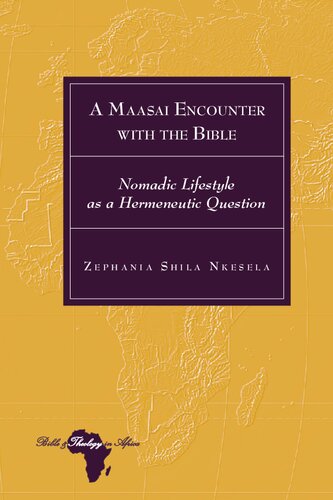

Most ebook files are in PDF format, so you can easily read them using various software such as Foxit Reader or directly on the Google Chrome browser.
Some ebook files are released by publishers in other formats such as .awz, .mobi, .epub, .fb2, etc. You may need to install specific software to read these formats on mobile/PC, such as Calibre.
Please read the tutorial at this link: https://ebookbell.com/faq
We offer FREE conversion to the popular formats you request; however, this may take some time. Therefore, right after payment, please email us, and we will try to provide the service as quickly as possible.
For some exceptional file formats or broken links (if any), please refrain from opening any disputes. Instead, email us first, and we will try to assist within a maximum of 6 hours.
EbookBell Team

5.0
30 reviewsThis book is a critical analysis of how Maasai informants read some selected Old Testament texts that are thought to have an appeal to people with semi/nomadic ways of life. The Maasai is a Nilotic ethnic group of semi/nomadic pastoralists living in the northern Tanzania, and southern Kenya, East Africa. The book focuses on the parallels between the Maasai and biblical concepts of nomadic lifestyle. On the one hand, the semi/nomadic heritage of the Maasai faces severe cultural and political difficulties when encountering East African modern ways of life. On the other, the ancient Israel actually experienced the opposite, seeing a strengthening of semi/nomadic ways of life. Therefore, the book demonstrates the potentials of the supposed parallels between the two by allowing the experiences of the ancient Israel to contribute to strengthen the semi/nomadic ways of life, a key aspect of traditional Maasai values into the contemporary East African context.